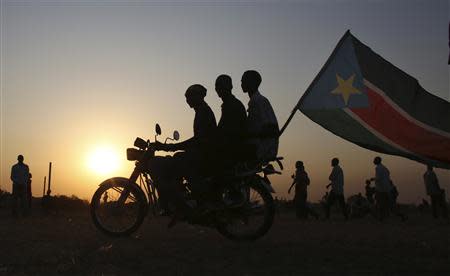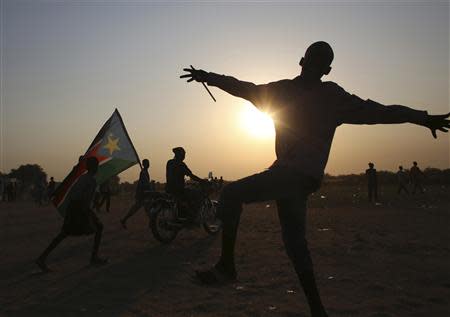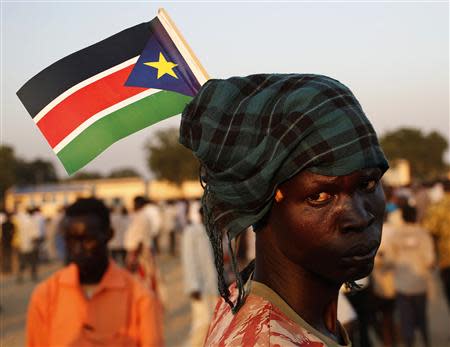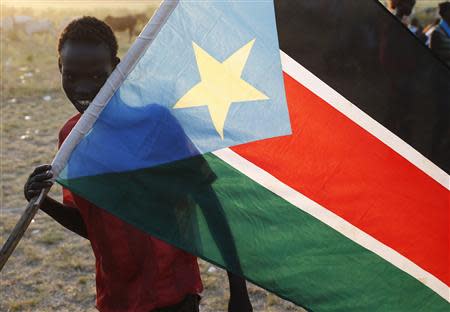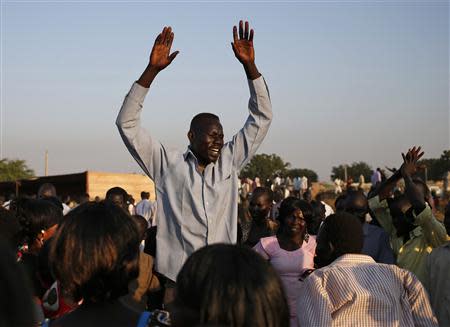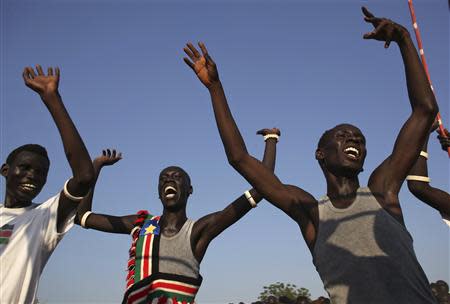Thousands in contested Abyei vote to join South Sudan, risking tensions
By Ilya Gridneff ABYEI (Reuters) - Permanent residents of the disputed Abyei region overwhelmingly voted to join South Sudan on Thursday in a symbolic referendum that could antagonize heavily armed Arab nomads who drive their livestock through the area and claim it for Sudan. Local leaders said they held the poll because they were tired of waiting for a long-promised official plebiscite on the ownership of the remote region on the border of Sudan and South Sudan, which has seen several clashes between their troops. The one-sided vote by the Dinka Ngok people, who occupy most of Abyei's permanent settlements and are loyal to South Sudan, had already been dismissed by both Khartoum and Juba who said it would carry no legal weight. "The Abyei people have been suffering for a long time. People are marginalized, mistreated and their rights denied. They deserve this day," Abyei Referendum High Committee Chairman Deng Alor told Reuters. The ownership of Abyei, which has rich pastureland and small oil reserves, was left undecided when South Sudan declared independence from Sudan in 2011. It remains one of the biggest potential flashpoints between the two countries, who have also argued over oil rights and other disputed territories since their split. Final results of the non-binding referendum showed 99.9 percent of those who voted backed joining South Sudan. There were about 65,000 registered voters. But the Misseriya did not take part and said the vote had no official worth in the eyes of Sudan, South Sudan or the international community. "The Dinka Ngok's referendum and its result do not concern us. It is an illegal process," Mokhtar Babo Nimr, Misseriya tribal leader, told Reuters by telephone. "We in the Misseriya tribe are committed to the official position of the Sudanese government," he said. "Abyei is a northern land that belongs to Sudan and we are on it and will continue to live there because it is our land." Abyei was a battleground in the civil war between the Khartoum government and the south that ran for more than two decades until a peace deal in 2005. The region has emotional, symbolic and strategic significance for both sides. It was promised a referendum on its status in the 2005 peace deal, but the vote was stalled by arguments over whether the Misseriya had the right to join the vote. Sudanese officials were not immediately available for comment on Thursday. Mawien Makol Arik, the South Sudan spokesman for the Ministry of Foreign Affairs, also said the government would not acknowledge the results of the referendum. "The position of the government remains, even if the results is actually in favor of the people coming to South Sudan, the position remains that we are not a party to any outcome there." The African Union last year promised Abyei a plebiscite in October 2013 but shied away from the proposal. It opposed the three-day unilateral referendum that ended on Tuesday, saying it risked complicating the situation further. This month Abyei town became a makeshift tent city as tens of thousands of Dinka Ngok returned to make their home, some from as far as Australia, in many of the buildings still without roofs and crumbling walls. A festival mood took over Abyei where in May 2008 and May 2011 Sudan Armed Forced attacked and seized the town forcing more than 100,000 people to flee. Locals in traditional costumes celebrated with singing and dancing and a cow was slaughtered and divided up between the nine Dinka Ngok chiefdoms in a party expected to go all night. (Additional reporting by Andrew Green in Juba and Khaled Abdelaziz in Khartoum; Writing by James Macharia; Editing by Edmund Blair)

